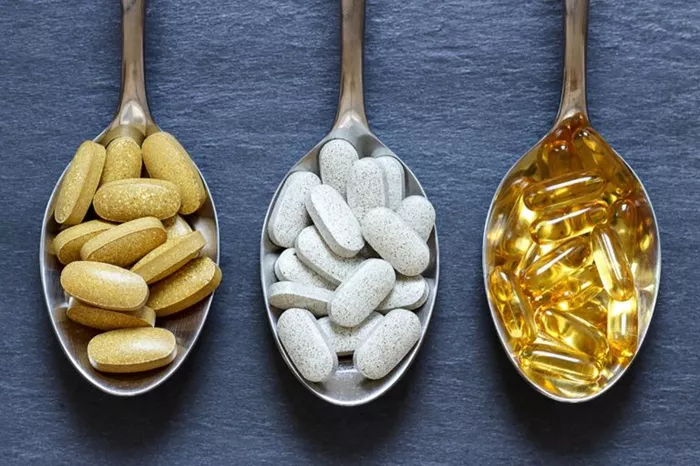Preparing for surgery involves more than just the procedure itself. Patients must also take care of their health before surgery to ensure the best outcomes. One crucial aspect of this preparation is taking the right vitamins. Vitamins can aid in faster recovery, reduce the risk of complications, and enhance overall health. This article explores the top five vitamins to consider before surgery and how they contribute to better surgical outcomes.
1. Vitamin C: The Healing Vitamin
Vitamin C, also known as ascorbic acid, is essential for tissue repair and immune function. It helps in collagen production, which is crucial for wound healing.
Boosts Immunity
Vitamin C strengthens the immune system, making it easier for the body to fight off infections during and after surgery.
Aids in Collagen Production
Collagen is a protein that helps in the formation of new skin tissue. Vitamin C aids in the production of collagen, speeding up the healing process.
Antioxidant Properties
Vitamin C has antioxidant properties that protect the body from oxidative stress, which can occur during surgery.
Taking a daily dose of vitamin C a few weeks before surgery can significantly improve recovery times and reduce the risk of complications.
2. Vitamin D: The Bone Health Vitamin
Vitamin D is crucial for maintaining healthy bones and a strong immune system. It helps the body absorb calcium, which is vital for bone strength.
Enhances Bone Health
Strong bones are essential, especially if the surgery involves bones or joints. Vitamin D ensures bones remain strong and healthy.
Boosts Immune Function
Vitamin D enhances the immune system, reducing the risk of infections during and after surgery.
Reduces Inflammation
Vitamin D has anti-inflammatory properties that can help reduce surgical inflammation.
Ensuring adequate vitamin D levels before surgery can aid in faster recovery and better surgical outcomes.
3. Vitamin E: The Antioxidant Vitamin
Vitamin E is a powerful antioxidant that helps protect the body from free radicals. It plays a significant role in skin health and immune function.
Promotes Skin Healing
Vitamin E supports skin health, which is essential for healing surgical incisions.
Boosts Immune System
A strong immune system is crucial for preventing infections post-surgery. Vitamin E helps in enhancing immune function.
Reduces Scarring
Vitamin E is known to reduce the appearance of scars, which can be beneficial after surgery.
Taking vitamin E supplements before surgery can promote faster healing and reduce post-surgical scarring.
4. Vitamin A: The Immune Booster
Vitamin A is essential for maintaining healthy vision, skin, and immune function. It helps in the production of white blood cells, which are crucial for fighting infections.
Enhances Immune Function
Vitamin A boosts the immune system, helping the body fight off infections during and after surgery.
Promotes Skin Health
Healthy skin is vital for wound healing. Vitamin A supports skin health and aids in the healing process.
Reduces Inflammation
Vitamin A has anti-inflammatory properties that can help reduce post-surgical inflammation.
Including vitamin A in your pre-surgery regimen can help improve immune function and promote faster healing.
See also: What vitamins should you stop taking before surgery?
5. B Vitamins: The Energy Boosters
B vitamins, including B1 (thiamine), B2 (riboflavin), B3 (niacin), B6 (pyridoxine), B9 (folic acid), and B12 (cobalamin), play a crucial role in energy production and immune function.
Boost Energy Levels
Surgery can be physically demanding. B vitamins help in converting food into energy, ensuring you have enough strength for recovery.
Enhance Immune Function
B vitamins boost the immune system, reducing the risk of infections post-surgery.
Aid in Red Blood Cell Production
B vitamins, particularly B12 and folic acid, are essential for the production of red blood cells, which are vital for healing and recovery.
Taking a B-complex supplement before surgery can provide the energy needed for recovery and enhance immune function.
How to Incorporate These Vitamins
It’s essential to consult with your healthcare provider before starting any new vitamin regimen, especially before surgery. They can provide personalized recommendations based on your health needs and the type of surgery you’re undergoing.
Dietary Sources
Incorporating these vitamins through diet is a natural and effective way to prepare for surgery. Foods rich in these vitamins include citrus fruits, leafy greens, nuts, seeds, fish, dairy products, and lean meats.
Supplements
Sometimes, it’s challenging to get enough vitamins through diet alone. In such cases, supplements can be an effective solution. Your healthcare provider can recommend the right dosage and type of supplements based on your needs.
Timing
Start incorporating these vitamins into your diet or taking supplements at least a few weeks before your surgery to ensure your body has enough time to build up its reserves.
Potential Risks and Precautions
While vitamins are beneficial, it’s important not to overdo it. High doses of certain vitamins can cause adverse effects and may interact with medications. Here are some precautions to keep in mind:
Consult with Your Healthcare Provider
Always talk to your healthcare provider before starting any new vitamin regimen, especially if you have existing health conditions or are taking other medications.
Avoid High Doses
Stick to the recommended dosage to avoid potential side effects. For example, high doses of vitamin E can increase the risk of bleeding, which is not ideal before surgery.
Monitor for Allergic Reactions
Some individuals may be allergic to certain supplements. If you experience any adverse reactions, discontinue use and consult your healthcare provider.
Conclusion
Preparing for surgery involves taking care of your overall health, and vitamins play a crucial role in this process. Vitamin C, D, E, A, and B-complex are essential for boosting immunity, promoting healing, and ensuring better surgical outcomes. By incorporating these vitamins through diet or supplements, and with the guidance of your healthcare provider, you can enhance your recovery and reduce the risk of complications. Remember, a well-prepared body is the key to a successful surgery and a speedy recovery.
Related topics:
Top 10 Foods That Slow Down Ageing
What Can Go Wrong With Rhinoplasty?
Can I Get A Rhinoplasty At 16?


